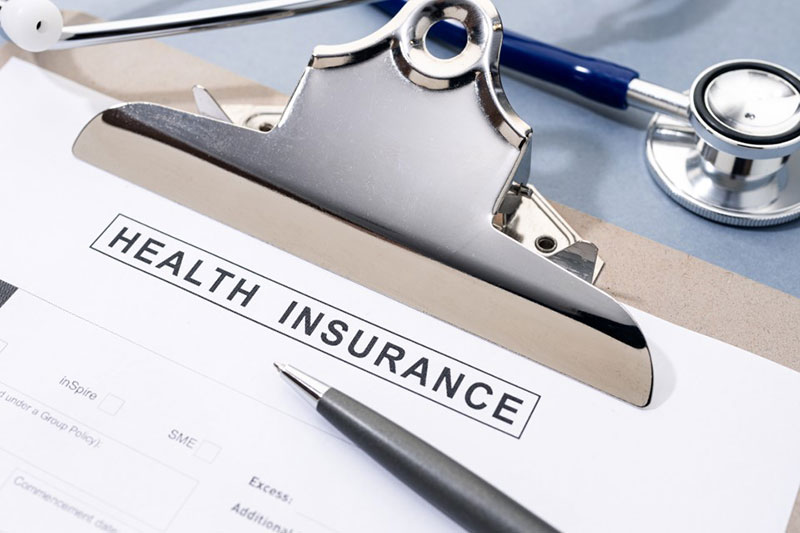
New MOH Rules for Integrated Shield Plan Riders (2026): What You Need to Know
24 Feb 2026
In November 2025, the Ministry of Health (MOH) announced significant changes to the way Integrated Shield Plan (IP) riders in Singapore will work from 1 April 2026. This is in response to the rising premiums of riders. The goal is clear: strengthen the long-term sustainability of private health insurance, ensure fairer healthcare usage, and slow down rapid premium increases driven by rising claims.
For years, riders have allowed Singaporeans to enjoy “almost no out-of-pocket cost” when hospitalised, especially those with private hospital plans. But this comfort has also come with consequences. Riders have contributed to higher utilisation, larger bill sizes, and steep premium increases across the industry.
From 2026, that model will shift. Here’s what the new rules mean, in plain, practical terms.
What exactly is changing from 1 April 2026?
Under the new MOH requirements, new Integrated Shield Plan riders sold from 1 April 2026 onwards, will no longer be allowed to fully cover the basic IP deductible. This means patients must pay the first portion of their hospital bill, usually between S$1,500 and S$3,500, depending on ward class, before insurance payouts begin.
The minimum 5% co-payment will remain, but the annual co-payment cap will double from S$3,000 to S$6,000 for patients who meet insurer requirements such as using panel doctors or obtaining pre-authorisation.
Feature | Before 1 April 2026 | After 1 April 2026 |
|---|---|---|
Deductible | Approximately $1,500-$3,000 and fully covered by rider | Not allowed to be covered, patient pays $1,500–$3,500 |
Co-Payment | 5% co-pay | 5% co-pay (unchanged) |
Co-Pay Cap | $3,000 | $6,000 |
Out-Of-Pocket | Usually $0 | Higher upfront costs for new riders |
Rider Price | Higher premiums | Premium price expected to drop by 30% |
Because coverage is reduced, it is only fair that the premiums for these new riders to reduce as well. In fact, insurers are expected to price these new riders about 30% lower than the current versions. In other words, riders will still provide you with strong financial protection, but they will no longer shield you from all upfront costs.
If you are purchasing a rider between now and 31 March 2026, bear in mind that there is a transition period, after which the new design becomes mandatory for all new riders.
Why is MOH making this change?
According to the Ministry of Health (Singapore), this decision is rooted in sustainability. Data shows that policyholders with “full riders”, where deductibles and most co-payments are covered, tend to claim more often, and incur larger bills, than those without such riders. It is understandable that policyholders who pay higher premiums for full riders would utilise their benefits fully, especially when health is involved.
People will naturally prioritise timely and quality care. It’s human nature and that is exactly what insurance was created for. Insurance is meant to reduce the financial barriers that prevent us from gaining access to life saving medication and treatment. So, rather than being a matter of overuse, this conundrum of never-ending increasing premiums reflects how the product was originally designed. At the same time, MOH notes that system-wide utilisation patterns and rising medical costs have contributed to premium growth, which is why rider structures are being adjusted for long-term sustainability.
What happens to people who already have a rider?

If you purchased your rider before 26 November 2025, your current contract remains valid. Your benefits do not automatically change on 1 April 2026. Existing riders, including those that fully cover deductibles, will continue to operate as they do today.
But that doesn’t mean you can breathe a sigh of relief. Insurers have been given the flexibility to review their older riders. Some may keep them as-is, while others may adjust benefits or encourage policyholders to switch to the new rider design in future. If your current rider is going to be subject to change, your insurer will have to communicate this clearly to you.
Importantly, if you bought a rider between 27 November 2025 and 31 March 2026, it will eventually be automatically converted to the new structure, but only when your policy renews after 1 April 2028. This gives you time to understand the changes and decide whether to keep or switch riders voluntarily.
If you choose to switch to the new rider after April 2026, this will not require new underwriting. Your existing medical conditions will continue to be covered.
How will the changes affect hospital bills?
The most direct impact is that you will now need to pay the deductible upfront if you are hospitalised. This is a fixed amount that varies by ward class and plan type, and it must be paid before your insurance coverage begins.
After the deductible, the 5% co-payment still applies. The main difference is the annual cap: the maximum co-payment per policy year will increase from $3,000 to S$6,000.
For example, if you are admitted to hospital and incur a $40,000 bill, your share of the bill under the new rider design might look like this:
- Deductible: $3,500
- Co-payment (5%): $1,825
- Total out-of-pocket before MediSave: $5,325
This $5,325 represents the portion you are responsible for before any MediSave deduction.
Depending on the type of treatment and MOH withdrawal limits, MediSave can then be used to offset part of this amount, reducing your actual cash outlay. For instance, if MediSave withdrawal limits allow you to claim $3,000 for the admission, your cash payable would drop to around:
- $5,325 – $3,000 = $2,325 (cash out-of-pocket)
The remainder of the hospital bill continues to be covered by your Integrated Shield Plan and rider. In practice, riders will still offer significant protection against large bills, but you should be prepared for some upfront and out-of-pocket expenses that were previously absorbed by insurers.
While MediSave can help reduce cash outlay, consider the other types of insurance plans you have. This includes your Corporate Insurance, if provided by your employer, and even your Personal Accident Plan, Critical Illness Plan, and Disability Income Insurance, if applicable. These additional insurance plans can help offset some of these expenses depending on the plan’s design.
Can corporate insurance help reduce your out-of-pocket costs?

If you receive healthcare benefits through your employer, your Corporate Insurance plan may help reduce your out-of-pocket expenses, depending on how the plan is structured. Bear in mind that not all corporate plans cover deductibles or payments but some do allow either partial or full coverage for these claims.
Certain corporate plans also provide additional coverage, such as:
- Hospital cash benefits, which pay a fixed daily amount during hospitalisation
- Supplementary limits for inpatient care
- Coverage that works alongside your Integrated Shield Plan
These benefits can help offset the amounts you need to pay upfront, especially as deductibles and co-payment caps change from April 2026 (for new applicants).
However, coverage varies widely between employers and insurers. So remember to review your corporate plan details with your HR, understand what can or cannot be claimed, and check how it interacts with your existing personal insurance.
Will rider premiums go up or down?
This depends on whether you keep your existing rider or switch to the new version.
News reports have indicated that the new riders (launched from 1 April 2026) are expected to be 30% cheaper than the current riders on the market. This is owing to their reduced deductible coverage and increased co-pay amount. However, since the likelihood of being hospitalised for many policyholders is slim, these new riders, with all things considered, are more affordable and accessible.
While the premiums for existing riders may continue rising in price, they still offer full coverage of deductibles and co-payment remains capped at $3,000; essentially reducing all out-of-pocket costs to $0. Therefore, for a large majority of policyholders, these riders are more worth it in the long run, especially considering how medical bills are expected to continue to rise over the years.
Choosing between the two depends on your health needs, financial comfort, and preference for predictable out-of-pocket costs.
Rather than limiting policyholders to a single rider structure, insurers should offer tiered rider options that reflect different levels of coverage and premium affordability. Consumers have diverse financial situations and varying expectations of what they want their insurance to cover. Those who are willing to pay higher premiums for more comprehensive protection value the predictability and peace of mind these plans provide, while others may prefer lower-cost options with higher out-of-pocket exposure.
Providing a range of rider choices allows us to align our coverage with our personal needs and comfort levels, rather than being required to adopt a one-size-fits-all product. Ultimately, empowering consumers with flexibility and choice supports a more transparent and sustainable insurance landscape, one that respects individual preferences without penalising those who are prepared to invest more in their healthcare coverage.
Should you keep your old rider or consider the new one?
How much you are willing to pay for rider premiums and the level of out-of-pocket costs you are comfortable with is ultimately subjective. There isn’t a single “right” answer, it depends on your situation and expectations.
If you value the convenience of having almost everything covered, and you want to minimise unexpected medical expenses, it makes more sense to keep your existing rider.
However, if you want lower premiums and are comfortable paying the deductible and potentially higher co-payments, the new rider may be more cost-effective.
Ultimately, the decision depends on how much cost-sharing you are comfortable with and how much certainty you want during a hospitalisation.
What about MediSave, can it still be used to cover my out-of-pocket costs?
Don’t worry, for now, nothing has changed. MediSave can still be used to reduce your out-of-pocket costs where eligible. Both the deductible and co-payment remain payable via your MediSave, subject to prevailing withdrawal limits. This helps reduce your cash outlay, even though you will still be responsible for these amounts under the new rider design.
How do panel doctors and pre-authorisation fit into this?

Panel usage becomes even more important under the new rules. Most insurers offer lower co-payment caps, faster claim processing, and greater assurance of coverage if you:
- See a panel specialist, and
- Obtain pre-authorisation before treatment
What should you do now?
The first step is to review your current plan. Check when your rider was purchased, what benefits it provides today, and when it is due for renewal. If you are unsure about your deductible, co-payment, or panel requirements, use our Coverage Checker to get clarity on your benefits.
Next, consider your own health needs. If you have chronic conditions, ongoing treatments, or a preference for private care, prioritise comprehensive coverage. If you seldom require hospitalisation and are comfortable with high out-of-pocket expenses, you may find the new rider more affordable.
Finally, speak with your insurer or adviser if you are considering a switch. Understand how each option affects your premiums and out-of-pocket costs to help you make a choice that aligns with your financial comfort and healthcare preferences.
The landscape is changing, but protection remains
MOH’s new rules mark a significant shift in how Integrated Shield Plan riders will work, but hopefully the fundamental goal is to keep private healthcare insurance sustainable, transparent, and accessible for the long term. While new riders will involve more cost-sharing through deductibles and co-payments, they still offer protection against hospital bills. Existing riders, for those who qualify to retain them, continue to provide the highest level of financial predictability.
For us, the priority now is clarity. Understand what your current rider covers, how the upcoming changes may affect your out-of-pocket costs, and whether you have additional support from MediSave or other insurance plans such as your Personal Accident Plan, Critical Illness Plan, Corporate Insurance, and Disability Income Insurance. Review panel requirements, know your pre-authorisation steps, and evaluate how much cost-sharing you are personally comfortable with.
Ultimately, there is no one-size-fits-all answer. Different riders and different price points meet different needs. What matters most is making informed decisions based on your health profile, financial comfort, and expectations of care.
With accurate information and a clear understanding of your options, you can navigate these changes confidently and continue safeguarding both your health and financial well-being.
Know your coverage, before you need it
Not sure if your plan covers what matters most? Check how your current insurance stacks up using our Coverage Checker.




